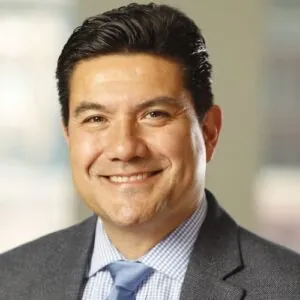Circulating Tumor Cells
What are circulating tumor cells?
Circulating tumor cells detach from solid tumors, circulate in the bloodstream. Since they are live cells from a patient’s tumor, they are considered a “liquid biopsy” of the tumor and offer the possibility to assess – in real time – the tumor’s characteristics, evolution, and resistance/response to treatments.
Why is this area of research important?
Circulating tumor cells present the risk of metastasis – the cause of 90% of cancer deaths. When captured from a blood sample, these cells can be used in genomic testing and screened for treatments. Expanded circulating tumor cells research could improve treatment plans for patients on a personalized level.
NFCR has long supported the circulating tumor cells research of Daniel A. Haber, M.D., Ph.D., which has led to the development of the advanced cancer cell detection technology. This micro-engineered device captures the few cancer cells lurking between the billions of healthy cells in a standard blood sample from a patient. The advanced cancer cell detection technology has demonstrated the capabilities of circulating tumor cells research to present significant benefits for cancer patients. The National Foundation for Cancer Research hopes to expand our support of live cancer cell research to reach even more patients.
The National Foundation for Cancer Research wishes to thank the Sorenson Legacy Foundation for its generous support to expand on this critical research initiative.
This joint partnership enables us to increase vital circulating tumor cells research that will benefit even more patients across cancer types.
Support Breakthroughs in Circulating Tumor Cells Research and Beyond
Researchers Working On Circulating Tumor Cells Research
Aditya Bardia, M.D.
Geffen School of Medicine, University of California Los Angeles
Himisha Beltran, M.D.
Dana-Farber Cancer Institute Harvard Medical School
Francesca Bersani, Ph.D.
University of Torino, Italy
Massimo Cristofanilli, M.D.
Weill Cornell Medicine
Benjamin Drapkin, M.D., Ph.D.
UT Southwestern Medical Center
Daniel A. Haber, M.D., Ph.D.
Massachusetts General Hospital Cancer Center
Ling Huang, Ph.D.
Henry Ford Cancer Institute
Esther Rheinbay, Ph.D.
Massachusetts General Hospital Cancer Center, Harvard Medical School
Christian Rolfo, M.D., Ph.D.
Icahn School of Medicine at Mount Sinai
Srinivas Viswanathan, M.D., Ph.D.
Harvard Medical School
Darren Carpizo, M.D., Ph.D.
University of Rochester
Igor Astsaturov, M.D., Ph.D.
Fox Chase Cancer Center
David H. Peng, Ph.D.
The University of Texas MD Anderson Cancer Center
A world without cancer is possible. Help us turn lab breakthroughs into life-saving realities.

5.7 Million+
Donors who have fueled NFCR’s mission

$420 Million+
Invested in high-impact research & programs

36+ Labs & Hundreds of
Nobel Laureates & Key Scientists received NFCR funding, driving breakthrough research


























